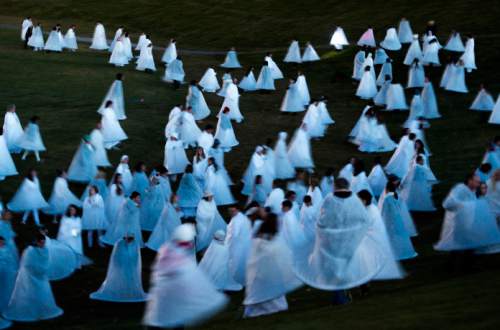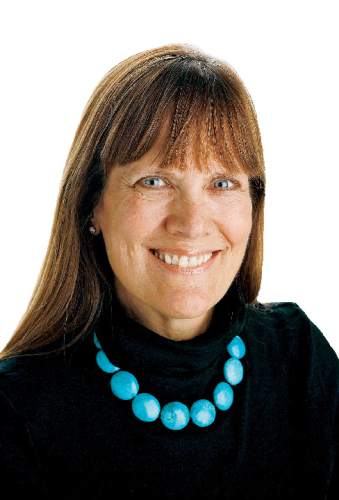This is an archived article that was published on sltrib.com in 2015, and information in the article may be outdated. It is provided only for personal research purposes and may not be reprinted.
My mother called that April morning in 1999 to say she was coming up from Provo to Salt Lake and did I want to get together?
Yes, I told her. Of course! But I had an appointment to get my hair cut. Did she want to wait for me at my house? She could sit on the couch in the living room and look at magazines.
No, she said. She'd go to the Family History Library and do a little research instead. We'd get together later that day.
Good times! I said. So off I went to the stylist and off my mother went to track down a few relatives.
After my hair was done, I crawled into my car, flipped on the radio and heard the news that there was a shooter at the Family History Library. Where my mother was. Instead of in my living room, reading magazines.
Here's what I remember about that moment: looking through my windshield at a cobalt sky and wondering how such a rare day had taken such an ugly turn.
I raced home to see if anyone had heard from Mom. I called everybody. My dad. My husband. My brothers. No one had heard a word.
My father stopped what he was doing and immediately headed for Salt Lake. My husband left his downtown office and immediately headed for the Family History Library, which was swarming with first responders. I sat at home by the telephone and waited for news.
My husband eventually found my mother in the Howard Johnson lobby with other evacuees. She'd been on the first floor and had, in fact, witnessed a shooting. She'd fled to the computer room, huddled against the wall and counted rounds. Pop. Pop. Pop. First there were eight pops, she said. And then four more. At least that's how she remembers it. When she was evacuated, my mother and the others walked past a woman lying prone on the ground but were told not to stop.
I don't revisit this territory very often and, remarkably, my mother doesn't either. They grow those girls tough up there in Wyoming. But whenever I open the newspaper and read about another shooting, it's hard not to remember those anxious April hours when chaos roared and none of us knew what would happen next.
Because of our family's personal experience, I'm always interested in the conversations that occur around a shooting event. You hear a range of things, of course, but what underpins many of the pronouncements people make (it seems to me) is fear. Fear of the mentally ill. Fear of the homeless. Fear of illegals. Fear of terrorists. Fear of anyone who looks like a terrorist. Fear that refugees might be terrorists. Fear that our government is doing too little or too much to control the flow of people and guns in this country.
Feeling fear is a natural response, of course. And fear can be a useful emotion. It kept our ancestors safe from saber-toothed tigers. It keeps us safe now. But here's the thing about fear. It can also leave us vulnerable to manipulation. Institutions of all kinds — political, religious, social and economic — have certainly been known to promote fear as a way to preserve themselves. Well-intentioned and cynical individuals alike use fear to peddle an agenda. Fear sells.
Which is why right now I've been thinking about the deep, deep irony inherent in the traditional Christmas story — how bright angels filled Middle Eastern skies with good tidings of great joy for all people. But before the good tidings came the injunction not to fear.
Fear not.
Because the angels knew that people always fear.





